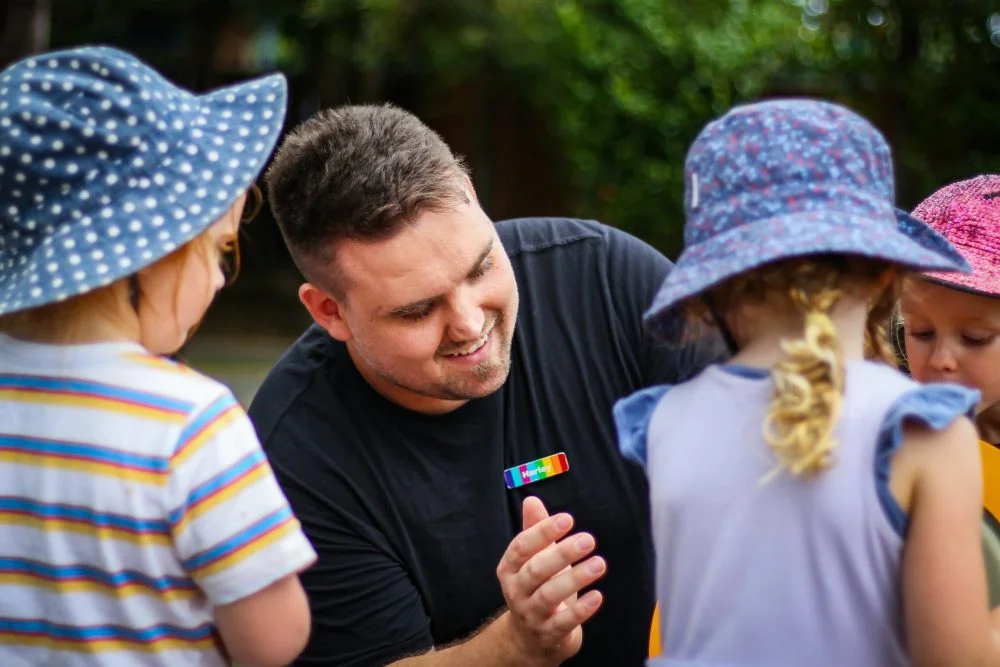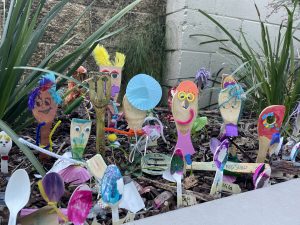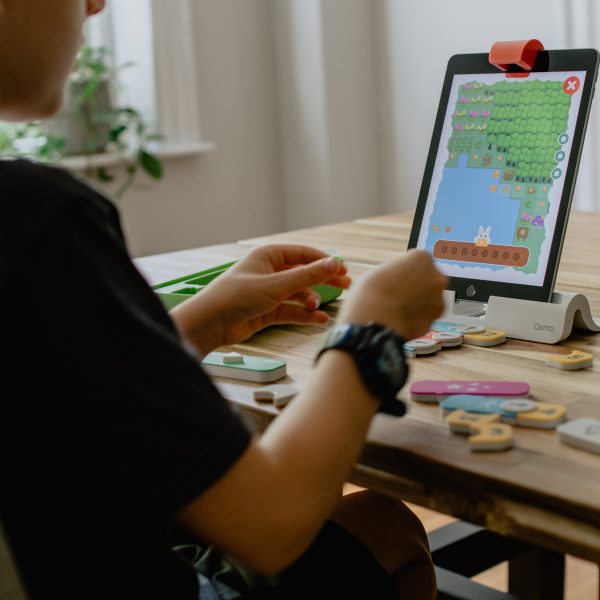Combating pandemic disconnection: How early education and care services nurture children and families’ sense of belonging within a community

While COVID-19 has fuelled feelings of isolation throughout our communities experiencing stay-at-home orders, educators within Early Education and Care (ECEC) services continue to advocate the importance of children and families engaging within their community. Educators understand the importance of children feeling a sense of belonging and connectedness to their community, as positive relationships strengthen children’s development, learning, and wellbeing.
The term ‘community’ has multiple meanings; however, in this instance, we focus on how children, educators, and families create a community within the ECEC service, plus the levels of engagement the service makes within the geographical location in which the service is situated.
Within the National Quality Standards (NQS), Quality Area five (Relationships with Children) promotes relationships between educators and children to be responsive and respectful. This encourages children’s sense of belonging and security. Quality Area six (Collaborative partnerships with families and communities) recognises the importance of educators formulating authentic and meaningful partnerships with families, which are the primary influence in a child’s life.
Research indicates robust, positive, and respectful relationships between educators and families can enhance children’s developmental trajectories and wellbeing outcomes1,2. Drawing on the National Early Learning Years Learning Framework (EYLF), it recognises the importance of the here and now of being, of building and maintaining relationships with others, and participating in life’s joys and challenges. Furthermore, the EYLF recognises that ECEC services are “places and spaces for building social connections and a feeling of belonging to the community…respecting each family’s nature, culture and home language/s”3.
A child’s sense of community develops as their sense of belonging and identity is nurtured by those around them. Positive role models such as educators and families play a vital role in fostering a child’s sense of belonging within a community through positive levels of engagement and interaction. Every child needs to experience stable, positive, and purposeful relationships with others and be respected, listened to, and noticed.
Children who feel belonging with family (immediate and extended), community, and environment will thrive. Belonging is essential as it allows a child to take learning risks and try out new things without fear of failure or rejection. They can apply their new knowledge and skills in safe and secure environments and formulate protective factors against mental health. Furthermore, if children feel a sense of belonging, they will develop confidence, greater levels of resilience, regulatory behaviours, self-concept, and self-identity. Belonging is central to being and becoming and who they become as they grow up within the world. If belonging weren’t necessary, we would thrive in living solitary lives.
In 2021, many ECEC services have been situated in local government areas that have been under tight COVID restrictions; thus, educators have had to be incredibly creative in their continuous community-building efforts. For children, their ECEC service provides them with an opportunity to form positive relationships and connections with a diverse group of people belonging to a larger community in which their service is located. Building upon a child’s sense of community is vital as it aids their sense of belonging, connection, identity, and pride in their families, peer groups, and the wider community.
Thus, many educators have been looking at innovative ways to connect with children and families who may not have been able to attend their service. Upholding a sense of belonging for children (and their families) can be achieved as educators consider numerous community connection initiatives. Educators can demonstrate that they hold children and families in mind through these initiatives, even when not attending your service.
Jessica, an educator at Bingara Gorge Community Preschool recently implemented a community connection initiative that involved educators adorning their faces on rocks that were hidden within the local estate where the ECEC service is located. The purpose of this initiative was to encourage children and families to engage in an experience together that would encourage them to actively walk around the estate and find their educator’s rocks.
Educators wanted to encourage children and families to find photos of their images and start conversations about the service, and to let the children know they are thinking of them. The underpinning developmental and learning benefits for children gained from this experience included: problem solving skills, confidence, building on their sense of trust, security and belonging, and gross motor skills. Also, through conversations children were able to enhance their receptive and expressive language skills.

The children and educators at Woronora Heights Community Preschool developed a community connection initiative that focused on raising hope within the community. Children decided to decorate spoons, and placed notes of hope on them for community members to read. These were placed within a communal community garden near the service, where the children would add and maintain the space, and would look for decorated spoons that were added to the garden by community members. Children unable to attend the services, could still visit the garden with a family member and read the messages of hope written by their peers and add their own spoon. This experience has enabled children to be advocates within their community, and build upon their sense of belonging and identity with their local community.
Educators at Manooka Valley Community Preschool reached out to individual children who were learning from home, by posting each of them a personalised letter letting them know they were being missed. The purpose of this community connection initiative was to ensure children knew they belonged to community, to promote feelings of connection and happiness with their service, feel accepted and maintain positive attachments with people they trust and who care for them outside their family. The team also pre-recorded messages and sent to all children using a digital platform called Kinderloop, where they held up messages for children and families to view together of hope and importance of staying connected.
Even during a pandemic, educators have continued to play a vital role in the lives of children and their families as they promote a positive sense of belonging for children through creative and agile initiatives that prioritise high-quality educator-child relationships. These quality relationships with children and families create positive learning environments and develop a culture of collaboration between families and educators to improve children’s learning and wellbeing outcomes. The continual dedication and professionalism of educators facilitating community connection initiatives for the benefit of children understand the importance of a whole community playing an essential role in the growth and development of young children. As they say, “it takes a village to raise a child.”
References
-
Vatou, A., Gregoriadis, A., Tsigilis, N., & Grammatikopoulos, V. (2020). Patterns of teacher-child relationships quality: Young children’s perspectives. Journal of Early Childhood Education Research, 9(2), 498-521.
-
Rucinski, C. L., Brown, J. L., & Downer, J. T. (2018). Teacher–child relationships, classroom climate, and children’s social-emotional and academic development. Journal of Educational Psychology, 110(7), 992.
-
Department of Education, Employment and Workplace Relations (DEEWR) (2009) Belonging, Being and Becoming: The Early Years Learning Framework for Australia. Canberra, ACT, Australia: Commonwealth of Australia.
Popular

Economics
Provider
Quality
Practice
Policy
Workforce
South Australia announces major OSHC sector reforms aimed at boosting quality and access
2025-06-30 09:49:48
by Fiona Alston

Quality
Practice
Provider
Research
ECEC in focus - Una Springwood’s intergenerational initiative brings young and old together through connection and care
2025-06-30 10:00:45
by Contributed Content

Quality
Practice
Provider
Workforce
Child left in storeroom at Sydney centre sparks concerns over supervision and trauma support
2025-06-30 09:09:58
by Fiona Alston















